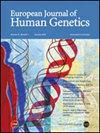Exploring the potential usefulness of the GCOS-16 for expanded applications
IF 4.6
2区 生物学
Q2 BIOCHEMISTRY & MOLECULAR BIOLOGY
引用次数: 0
Abstract
The Genetic Counselling Outcome Scale-24 (GCOS-24) measures empowerment reliably in the context of genetic services, but its potential utility is constrained by some of its features. Using Rasch Measurement Theory, the GCOS-16 was developed: eight items were removed and the Likert scale collapsed from seven response options to three. The GCOS-16 has improved performance, and potential for usefulness beyond its original design i.e., identifying/triaging patients who may benefit most, and comparing genetic counseling (GC) to non-GC interventions. In this study, using the GCOS-24 data collected from a psychiatric GC clinic, we aimed to use a statistical method to determine the minimal clinically important difference (MCID) of the GCOS-16, and to examine whether the GCOS-16, or any individual items or subdomains could be used to identify patients who would most benefit from GC. The GCOS-24 data (24-items, 7-point Likert scale) from 307 charts were transformed into the GCOS-16 scoring (16 items, 3-point Likert scale). The GCOS-16 scores increased from pre- to post-GC (p < 0.001, d = 0.935), and the MCID was determined to be an increase of 2.5 points. There were significant differences between pre- to post-GC for all items and subdomains except for item #6. Patients receiving in-person GC were more likely to meet the MCID than those receiving service by telephone or telehealth (p < 0.001). Our data demonstrate that the GCOS-16 is sensitive to change in empowerment without ceiling effects – this could be used to triage patients for GC, and to compare GC to non-GC interventions.

探索GCOS-16对扩展应用程序的潜在用处。
遗传咨询结果量表-24 (GCOS-24)在遗传服务的背景下可靠地衡量赋权,但其潜在效用受到其某些特征的限制。利用Rasch测量理论,GCOS-16被开发出来:八个项目被删除,李克特量表从七个反应选项缩减到三个。GCOS-16改进了性能,并且在其原始设计之外具有潜在的用途,即识别/分类可能受益最多的患者,并比较遗传咨询(GC)和非GC干预。在本研究中,我们使用从精神科GC门诊收集的GCOS-24数据,目的是使用统计学方法确定GCOS-16的最小临床重要差异(MCID),并检验GCOS-16或任何单个项目或子域是否可以用于识别最受益于GC的患者。将307张图表中的GCOS-24数据(24项,7点李克特量表)转化为GCOS-16评分(16项,3点李克特量表)。GCOS-16评分从gc前到gc后增加(p
本文章由计算机程序翻译,如有差异,请以英文原文为准。
求助全文
约1分钟内获得全文
求助全文
来源期刊

European Journal of Human Genetics
生物-生化与分子生物学
CiteScore
9.90
自引率
5.80%
发文量
216
审稿时长
2 months
期刊介绍:
The European Journal of Human Genetics is the official journal of the European Society of Human Genetics, publishing high-quality, original research papers, short reports and reviews in the rapidly expanding field of human genetics and genomics. It covers molecular, clinical and cytogenetics, interfacing between advanced biomedical research and the clinician, and bridging the great diversity of facilities, resources and viewpoints in the genetics community.
Key areas include:
-Monogenic and multifactorial disorders
-Development and malformation
-Hereditary cancer
-Medical Genomics
-Gene mapping and functional studies
-Genotype-phenotype correlations
-Genetic variation and genome diversity
-Statistical and computational genetics
-Bioinformatics
-Advances in diagnostics
-Therapy and prevention
-Animal models
-Genetic services
-Community genetics
 求助内容:
求助内容: 应助结果提醒方式:
应助结果提醒方式:


